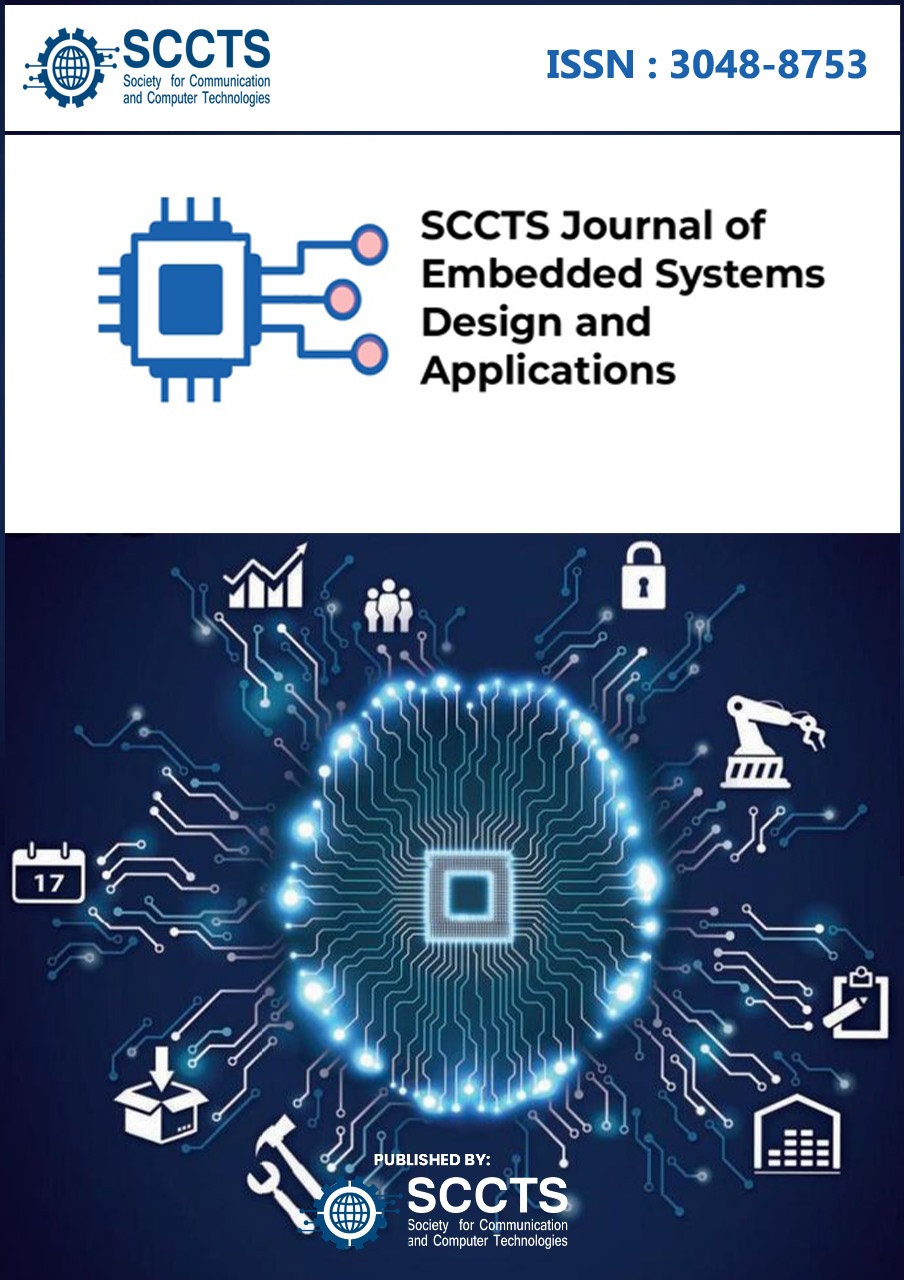AI-Augmented Dynamic Partial Reconfiguration for Adaptive Edge Intelligence in FPGA-Based Systems
DOI:
https://doi.org/10.31838/ESA/03.01.03Keywords:
Dynamic Partial Reconfiguration, FPGA, Edge Intelligence, Reinforcement Learning, Adaptive Computing, AI-Augmented Reconfiguration, Runtime AdaptationAbstract
Edge computing systems need to support dynamic workloads with low-latency and energy-efficient, flexible processing to be able to operate in real time. A hardware platform, such as Field-Programmable Gate Arrays (FPGAs) can offer a promising platform to satisfy these requirements due to its in-built reconfigurability. Conventional static strategies of reconfiguration though, are not much efficient in adapting to variations at run time leading to poor performance. This article suggests an AI-aided Dynamic Partial Reconfiguration (DPR) system to support intelligent handling, and scheduling of partial reconfigurable regions (PRRs) in FPGAs via reinforcement learning (RL). The RL agent will dynamically choose configuration bitstreams depending on the workload profiles and environmental context in order to achieve maximum system efficiencies. On a Xilinx Zynq-7000 platform experimental validation gains are up to 42% improvement in energy efficiency and 2.1X reduction in reconfiguration latency over static and heuristic approaches. The presented solution promotes flexibility and payload delivery, which forms a scalable base of real-time intelligence delivery in the field of autonomous vehicles, smart infrastructure, and Industry 5.0.





